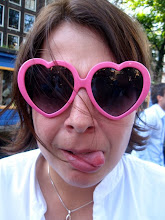Saved by Nomads
At first, we fought the cold of the rain with the body heat. But, as we ascended toward the pass, the temperature began to drop. The rain turned to face-stinging-ice pellets. And then to snow.
There was a voice in my head telling me that it was a bad idea to continue hiking directly into the deteriorating weather. But we were soaked and cold and we needed to keep moving. Without a wood or fuel, we had little hope to get dry or warm on our own. It was too late to stop. I realized that we might need to keep moving past sunset, which was eight hours away, in order to reach the next town.
Our progress was impeded by a massive washout, which required an equally massive detour upstream to avoid getting our feet wet. By this point, the water that was dripping from my drenched pants had already soaked my shoes and socks. Detouring to stay dry was a complete denial of the situation, imagining that there was some inch of dryness or warmness on my body that I could salvage. But the diversion upstream gave me something to think about other than the grim reality of our situation.
The river looked like a delta across a snowy field of grass. We leaped from one little island to another, while balancing >20kgs of gear on each of our backs. The situation was becoming increasingly urgent. Pierre spotted a tent with some smoke coming from a little chimney. Inside was a woman and three children. While we didn't have the benefit of common language to communicate, it was clear that we were in a bad situation and it was clear that they were willing to help.
Pierre and I sat in front of the fire; at first just warming ourselves and then methodically drying our clothing, item by item. The woman took a kettle from the fire and poured us some hot yak milk, while her young son filled the pot belly stove with dried yak poop.
Judging by the grass on the floor inside the tent, the family hadn't been here for long. They were nomads and we were just very, very lucky that they had chosen this spot to call home right now.
We stayed for a couple of hours until the storm passed and then we carried on our way. As we reached the highest point of the pass, we saw several other hikers (all monks) coming from the other side of the mountain. I have no idea how they weathered the storm or whether they even experienced it on the other side.
By now it was relatively clear and we could actually enjoy the view. Every step for the rest of the day was a celebration. The weather improved, the scenery became increasingly spectacular and, well, we were heading downhill, so we were feeling strong and speedy.
It's warm and dry as we head to sleep. The sun is even showing itself. I'm warm and comfortable and even a little bit giddy. As we were reaching the pass this morning, I really thought that there was no way that I could feel this way today.
Our only worry at this point is as we look at our hand drawn map; we aren't entirely certain where we are. It's not that we think that we are lost, it's just not clear how far we have gone or how much farther we need to walk. I think that I'll leave this as tomorrows problem.



























